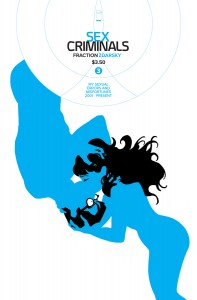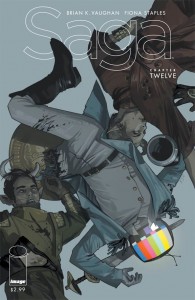 More people read comics digitally every year, but for Apple users, freedom of choice has been limited. Publishers and creators in the digital realm have been stymied by censorship arising from Apple’s inconsistent enforcement of content policies, which resulted in some of the more high-profile bans of 2013.
More people read comics digitally every year, but for Apple users, freedom of choice has been limited. Publishers and creators in the digital realm have been stymied by censorship arising from Apple’s inconsistent enforcement of content policies, which resulted in some of the more high-profile bans of 2013.
In a landscape that includes competitors like Amazon, Barnes & Noble, and Kobo (all of whom have censorship issues of their own), Apple so far appears to be the digital distributor that has the most restrictive enforcement of content policies, often restricting access to constitutionally protected material. Under Apple’s purview, comics are taking some of the most high profile hits.
• Removal of Self-Published Content by Online Retailers Results in Petition
Earlier this year, French comics distributor Izneo was given just 30 hours to remove objectionable material from their app or face being banned from the App Store. Although Izneo attempted to seek clarity, Apple remained steadfast in their refusal to elaborate, ultimately leaving the digital distributor to make their own judgment call. In a staggering act of self-censorship, Izneo removed approximately 1,200 of their original 4,000 comics, eliminating anything that included “a breast, provocative cleavage, a curve or a suggestive gesture.”
• Apple Goes on Censorship Spree
In American comics, Matt Fraction and Chip Zdarsky’s Sex Criminals repeatedly came up against the vague content policy. In November, issues #2 and #3 were rejected from the App Store based on undisclosed violations, and issue #1, which had been available for nearly two months, was retroactively removed.
One read of the first two issues of Sex Criminals could easily clear the series of implied accusations of being pornography. Is it sexy? Yes. Is there nudity? Yes. Is it obviously intended to be the type of book you lock yourself in the bathroom with water running on full-blast? Probably not. The sexual imagery is beautifully drawn — artistic, playful, and passionate, even a little heartbreaking at times, focusing on the feelings of intimacy rather than blatantly erotic visuals. It hilariously examines discovering sexual identity, experimentation, and physical relationships transcending sex to create new experiences. With themes and content that seem to meet Apple’s guidelines, the real question becomes clear: Do the moderators reviewing content at Apple understand the value of comics?
• Apple’s Ban of Sex Criminals Series Reveals Inconsistent Enforcement of Policy
 Apple’s inconsistencies in policy enforcement are removing vital and protected speech from the marketplace. While it’s true that as a private company they can do what they want, the inconsistency in enforcement leads to high potential for creators and companies to blindly self-censor (as happened with Saga #12, when comiXology initially declined to release it for fear of Apple’s response), and removes choice from users. As a distributor, Apple is embarking on a dangerous path in which their inconsistent policy application leads to charges that they are behaving more like the Motion Picture Association of America ratings board or the now defunct Comics Code Authority than an independent content distributor should, allowing or denying customer access to content without clearly defining what’s acceptable.
Apple’s inconsistencies in policy enforcement are removing vital and protected speech from the marketplace. While it’s true that as a private company they can do what they want, the inconsistency in enforcement leads to high potential for creators and companies to blindly self-censor (as happened with Saga #12, when comiXology initially declined to release it for fear of Apple’s response), and removes choice from users. As a distributor, Apple is embarking on a dangerous path in which their inconsistent policy application leads to charges that they are behaving more like the Motion Picture Association of America ratings board or the now defunct Comics Code Authority than an independent content distributor should, allowing or denying customer access to content without clearly defining what’s acceptable.
• What the Saga #12 Controversy Says About Self-Censorship
While Apple’s policy may not be explicit, the messages these examples send are quite clear: Apple does not understand or value their comics content. Perhaps in 2014 they can implement transparent content guidelines, employ content reviewers with an understanding of comics and communicate at a high level with their clients to ensure a bright future for their digital materials.
We need your help to keep fighting for the right to read in 2014! Help support CBLDF’s important First Amendment work by visiting the Rewards Zone, making a donation, or becoming a member of CBLDF!